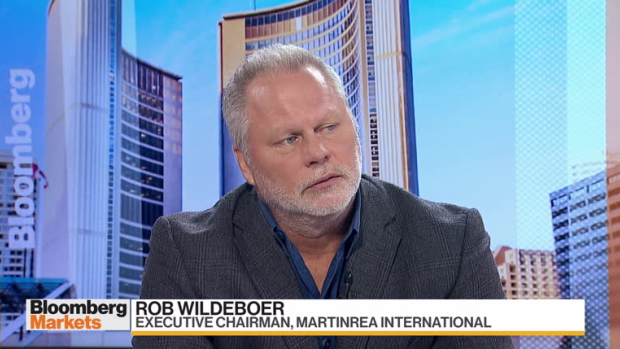Aug 28, 2018
'A tariff on General Motors': Martinrea co-founder warns Trump not to hit Canadian cars

One of Canada’s top auto parts executives said the U.S. should consider who would suffer the most if it imposed automotive tariffs to try to speed a NAFTA deal to conclusion.
“The reality is that if the US. imposes tariffs on Canadian production, you’re putting a tariff on General Motors, Ford, Chrysler, Toyota and Honda,” said Rob Wildeboer, executive chairman and co-founder for Martinrea International Inc., in an interview with BNN Bloomberg on Tuesday. “You’re not necessarily putting a tariff on the Canadian folks. You’re effectively hurting your own manufacturers and it doesn’t make sense.”
U.S. President Donald Trump once again dangled the spectre of auto tariffs Monday when discussing trade negotiations with Canada after U.S. officials found common ground with Mexico on cars that led to a bilateral trade agreement between the two countries that could replace the North American Free Trade Agreement..
“I think with Canada, frankly, the easiest thing we can do is to tariff their cars,” Trump said on a conference call with outgoing Mexican President Enrique Pena Nieto in the Oval Office on Monday. “It’s a tremendous amount of money and it’s a very simple negotiation. It could end in one day and we take in a lot of money the following day.”
Wildeboer thinks Trump is just posturing with his talk of implementing auto tariffs on Canada.
“There’s an element of ‘We can huff and we can puff,’ and so forth, but at the end of the day, the actual tariffs that have been put in place – the steel and aluminum tariffs – are pretty minor in a lot of respects in the context of our industry,” he said.
He called the U.S.-Mexico trade agreement a “good cause for optimism” and a good sign that a trilateral deal gets done with Canada.
“We have a lot of plants in Mexico and the U.S. and that deal alone is very good for our company,” he added. Wildeboer noted that the agreements on higher rules of origin for North American cars and higher wages for Mexican workers will benefit the entire auto industry.
“I think the reality is that we’re going to get there. Let’s get past the rhetoric. I think what we’re going to see is a better auto relationship going forward,” he said.





